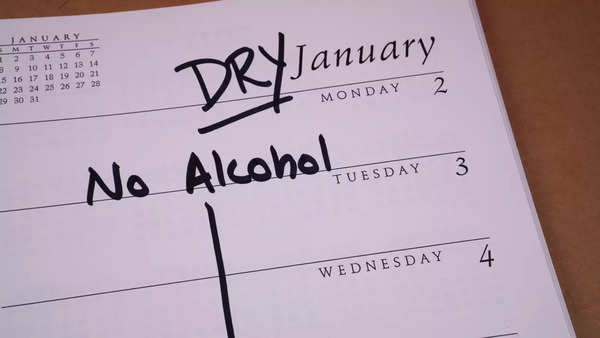With the holiday season behind us, it’s time to reset, refocus, and prioritize health. Having one too many drinks during festive celebrations is common, but getting back on track is equally important. That’s where
Dry January
comes in. This wellness trend is about going alcohol-free for a month. This challenge has gained popularity as a way to start the new year with a healthier mindset. But what really happens to your body and mind when you give up alcohol for 31 days? Let’s take a look.
No level of alcohol consumption is ‘safe’
Drinking alcohol can lead to numerous health concerns including increased risk of liver damage, heart disease, brain damage, cancer, weight gain, and mental health issues among others.
According to WHO (World Health Organisation), no level of alcohol consumption is safe for our health. “We cannot talk about a so-called safe level of alcohol use. It doesn’t matter how much you drink – the risk to the drinker’s health starts from the first drop of any alcoholic beverage. The only thing that we can say for sure is that the more you drink, the more harmful it is – or, in other words, the less you drink, the safer it is,” Dr Carina Ferreira-Borges, acting Unit Lead for Noncommunicable Disease Management and Regional Advisor for Alcohol and Illicit Drugs in the WHO Regional Office for Europe explains in a statement.
Being alcohol-free will of course benefit your health.
Dry January leads to less alcohol consumption in the following months
In 2018 research led by Sussex psychologist Dr Richard de Visser, found that the Dry January has long-term health benefits.
800 people took part in the Dry January study, and results suggested that people drank less in the following months.
“The simple act of taking a month off alcohol helps people drink less in the long term: by August people are reporting one extra dry day per week. There are also considerable immediate benefits: nine in ten people save money, seven in ten sleep better and three in five lose weight. Interestingly, these changes in alcohol consumption have also been seen in the participants who didn’t manage to stay alcohol-free for the whole month – although they are a bit smaller. This shows that there are real benefits to just trying to complete Dry January,” Dr de Visser said in a statement.
Improved insulin resistance and weight management
A 2018 study, found that short-term abstinence from alcohol results in improved insulin resistance. Participants of the study, who avoided alcohol for a short-term period, experienced weight loss, as improved insulin resistance, influenced hunger, and feelings of fullness. Alcohol consumption leads to added calories, without nutritional value, which often leads to weight gain.
Regulating blood pressure
Alcohol can negatively impact blood pressure in multiple ways. Consuming alcohol can lead to constriction (narrowing) of the blood vessels, which increases vascular resistance and raises blood pressure. This can worsen the existing hypertension and increase the risk of heart-related issues.
Zhao Lusi Is Unrecognisable In Hospital Videos, Breaks Silence On Abuse After Health Scare | WATCH
Improves liver function
Limiting alcohol intake, even for a short period, can have a significant positive impact on liver health. The liver metabolizes alcohol, however, excessive consumption leads to exceeding its capacity, resulting in inflammation and fat buildup. Over time, this can lead to fatty liver disease. By avoiding alcohol for a month, you give your liver a chance to heal and shed the fat.
I’m Manas Ranjan Sahoo: Founder of “Webtirety Software”. I’m a Full-time Software Professional and an aspiring entrepreneur, dedicated to growing this platform as large as possible. I love to Write Blogs on Software, Mobile applications, Web Technology, eCommerce, SEO, and about My experience with Life.






